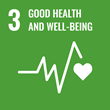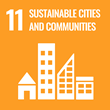
Project information
Impact of exposure to chemicals to the onset and progression of Lewy Body Dementia
(FRANKIE)
- Project Identification
- 101130769
- Project Period
- 7/2023 - 6/2025
- Investor / Pogramme / Project type
-
European Union
- Horizon Europe
- Widening participation and strengthening the European Research Area
- MU Faculty or unit
-
Faculty of Science
- Elliott James Price, PhD
- Žiga Tkalec, PhD
- Keywords
- exposome, exposure, dementia, biomarker, metabolite
With aging, the incidence of neurodegenerative diseases is increasing. Clinical manifestations of neurodegenerative disease often result in dementia, a group of symptoms including loss of memory and impaired cognitive functions that have serious consequences for the wellbeing of aging individuals and society. Dementia is a syndrome of many diseases, including Lewy body dementia (LBD).
Whilst the genetic factors contributing to the development of LBD have been investigated, links between exposure to chemicals and LBD have not been sufficiently studied. The FRANKIE project aims to comprehensively investigate the chemical exposome of patients with LBD and elucidate underlying mechanisms of exposure-related neurotoxicity. Blood-based chemical exposure agents and metabolites of LBD patients will be measured via a unique dual liquid chromatography coupled to high-resolution mass spectrometry platform. Advanced statistical and data mining methods will be employed to associate chemical exposures with dysregulated metabolic pathways to identify biomarkers of effect. Furthermore, by comparison of metabolic profiles of healthy people, people with early LBD and LBD patients, novel prodromal and clinical blood biomarkers will be identified.
The proposed interdisciplinary, data-driven study is a big step towards understanding the influence of everyday chemical exposure on the onset and progression of neurodegenerative disease. The FRANKIE project will produce mechanistic insights of chemical exposure-related neurotoxicity, providing the opportunity to identify prevention measures and potentially reduce the incidence of neurodegenerative diseases to improve the quality of life of the elderly and aging populations and contribute towards a healthier society.
Sustainable Development Goals
Masaryk University is committed to the UN Sustainable Development Goals, which aim to improve the conditions and quality of life on our planet by 2030.
Publications
Total number of publications: 1
2025
-
Dual LC column characterization for mass spectrometry-based small molecule profiling of human plasma and serum
Analytica Chimica Acta, year: 2025, volume: 1356, edition: June 2025, DOI



